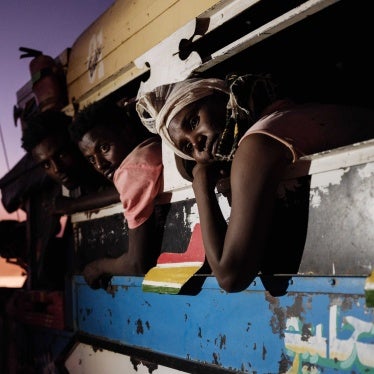President Yoweri Museveni recently said the Domestic Relations Bill, which would bolster women's rights in the family and criminalize marital rape, is "not urgently needed." But what could be more urgent than stopping the brutal violence that puts women and girls at risk of HIV/AIDS, harms economic development, and violates fundamental human rights?
The Domestic Relations Bill, which has languished in parliament for more than a decade, would afford women and girls greater equality in matters relating to marriage, divorce and family property. Importantly, it would also criminalise marital rape. Debate on the bill was scheduled for May, but has been postponed until this month.
Opponents
The bill has plenty of opponents, from those who condemn it on religious grounds to those who simply want to maintain male dominance in families. But have the bill's opponents considered all the costs of women's inequality, and of domestic violence in particular? Domestic violence and marital rape have profound economic costs. Studies from the 1990s showed that violence against women lowers women's income and increases expenditures for police, judicial services and health systems. The yearly cost of intimate-partner violence in the United States amounts to approximately US$5.8 billion-almost as much as Uganda's entire gross national product. One study showed that abused women in the United States earn up to 20 percent less each year than those who have not been abused. Inequality The Ugandan Ministry of Finance recognises the economic harm of women's inequality, stating in its 2002 participatory poverty assessment that "gender inequality emerges … as one of the main reasons for persistent poverty."
The World Bank also understands the grave economic impact of women's inequality and violence against women, so much so that in March, in its gender assessment of Uganda, it specifically recommended that the government enact this Domestic Relations Bill. The World Bank report states that a large body of empirical economic evidence shows that "gender inequality directly and indirectly limits economic growth in Uganda." Uganda can't afford this drag on its economy. Poverty in Uganda has risen since 1999, with some 38 percent of the population now living in abject conditions. Failing to enact the Domestic Relations Bill will only perpetuate this poverty. Domestic violence and marital rape, which affect approximately 40 percent of Uganda's women and girls, also have tragic health costs, particularly in light of HIV/Aids. A recent study found that women in rural Uganda who reported having been forced to have sex against their will had eight times the risk of becoming infected with HIV. A recent study in South Africa found significantly higher rates of HIV infection in women who were physically abused, sexually assaulted or otherwise mistreated by their intimate male partners. Costs And then there are the overall economic costs of HIV/Aids. Sub-Saharan Africa's economic growth rate has fallen approximately 4 percent because of Aids.
Labour productivity has been cut by 50 percent in the hardest-hit countries. As a party to international and regional treaties protecting women's human rights, and on the basis of the gender equality provisions in its own constitution, Uganda has an obligation to ban marital rape. Under international law, women have the right to equality in their families, to freedom from violence, and to decide freely whether they want to have sex, free of coercion, discrimination and violence. Even for those who don't care about women's human rights, and even for those who aren't bothered that rapists walk free while women bear the scars, there are other compelling reasons to support the Domestic Relations Bill. Economic development and the fight against HIV/Aids are two other critical reasons to pass this bill.





